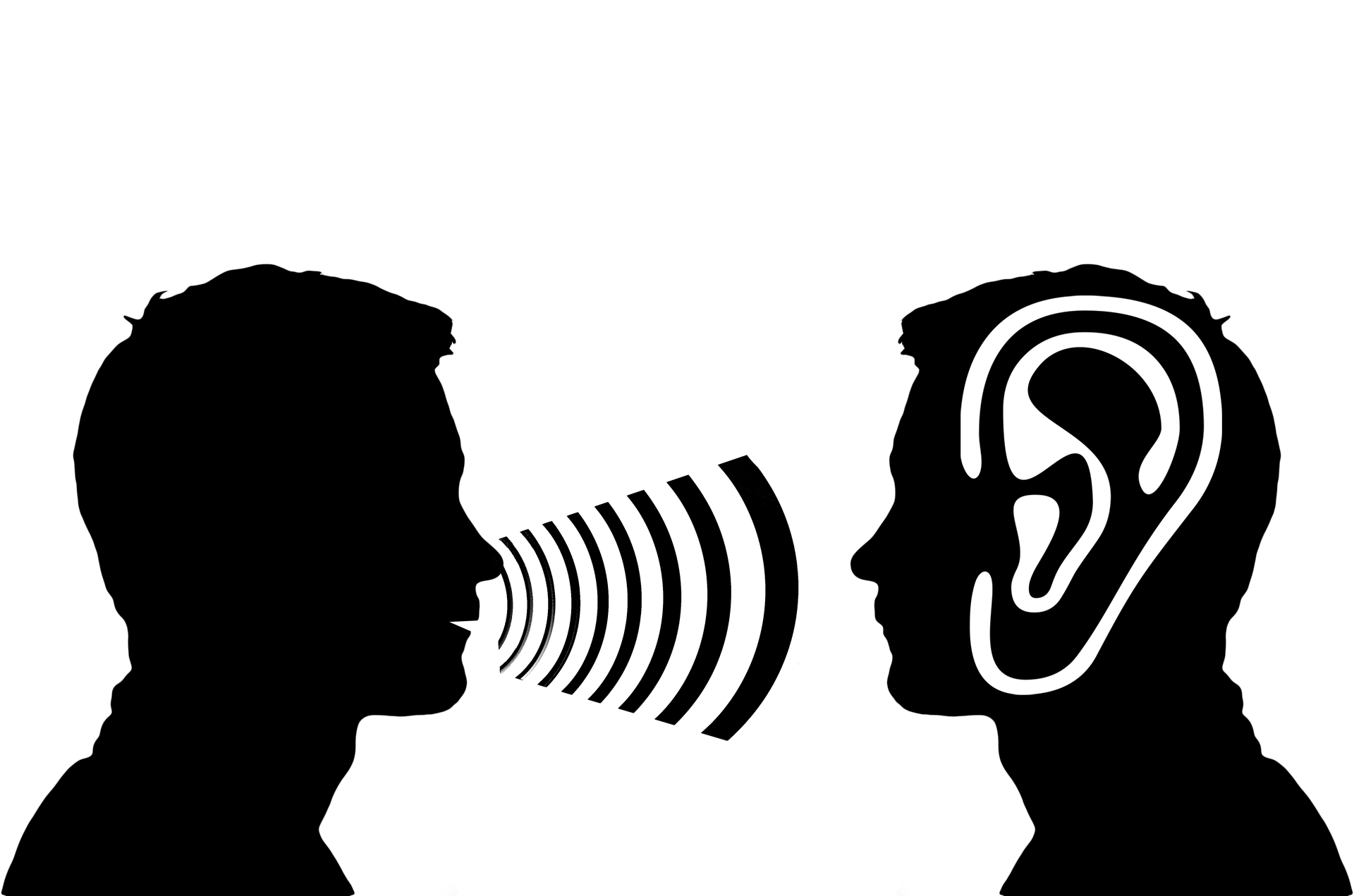Everything to Know About Hearing Loss

The importance of our five senses cannot be denied: sight, touch, hearing, smell, and taste. They enable us to communicate with the world that surrounds us.
An inability to communicate
More than anything else, hearing is the most critical to our ability to communicate with one another. Certainly, sight and touch allow us to convey and interpret emotions – to feel & see the world around us. Hearing, however, helps us place things in a particular context that other senses can’t.
Think about the world you live in if you could not hear:
- Children laughing.
- Birds chirping.
- A song’s lyrics.
- The dialogue of a movie.
- Someone saying I love you.
It’s not only the positive aspects of sound that we would be missing out on, either. Our hearing ability functions as a security system as well. It can alert us against any danger or assist in recognising when people are in trouble, allowing us to intervene.

Imagine you could not hear the baby’s cry or tornado sirens or emergency fire alarm.
Hearing loss can cause a person to feel lonely or isolated. Communication is the foundation of how we interact with each other. The inability to understand other people’s words can result in inadequate performance at work, infrequent interactions with others or an individual withdrawing from the people they share a close relationship.
Studies have revealed that hearing loss can cause dementia in elderly patients. This is due to years of hearing loss and social isolation that take their toll.
Like the other senses, it’s easy to take our hearing for granted. When it’s working, we pay little to no attention to our ability to hear and don’t even think about it. However, this is changing. Based on the latest statistics, hearing loss is a rising health problem for many.
Around 3.6 million Australians suffer from some kind of hearing loss. It’s the third most prevalent health problem for older adults.
What triggers people to hear loss? What can you do to stop loss of hearing? Let’s look at how hearing loss affects people, its signs, and causes, and how to prevent it.
How the ear works
Hearing loss can affect anyone, regardless of whether it is temporary or permanent. In many people, hearing loss trigger as they grow older. To understand hearing loss and why it happens, you must first understand how the ear works.
Comprising three main parts – the middle, inner and outer ear – your hearing ability begins when sound waves pass across your outer ear. This movement causes vibrations inside your eardrum, a passageway that connects your outer and middle ears. The eardrum and three smaller bones – malleus stapes and incus amplify the vibrations.
The amplified signals enter the inner ear and pass across the cochlea. The nerve cells in the cochlea transform the sound waves into signals that are transmitted and converted into sounds inside the brain.
Hearing loss symptoms
Hearing loss isn’t always noticeable. Our ability to hear is usually dependent on the environment we live in. Just because you cannot comprehend a conversation in a noisy place doesn’t necessarily mean you have hearing loss and need a wireless hearing aid.
However, a few early signs that, if persisting, might indicate possible health issues that warrant an appointment with your doctor. The most common include:
- Problems with comprehending basic speech or familiar words. This can include hearing muffled speech when someone is speaking or everyday sounds that seem dull or muted.
- Having to ask people to repeat, speak more slowly, or have difficulty understanding certain consonants or higher pitch.
Requires constant adjustment of the TV or radio’s volume (up and up). - You can’t understand what’s said in environments with a lot of background sound.
- Do not understand the meaning of words during a conversation in which more than one person is talking.
As mentioned, isolated instances involving any of the above could occur to people with excellent hearing (for instance, a person may stumble when speaking). However, hearing loss is often gradual; you might not even realise that these daily signs.
Types of hearing loss
Medical professionals categorise hearing loss into four different types and stages. The four most common kinds of hearing loss are:
Conductive hearing loss: Soundwaves cannot reach the middle ear through the outside ear. The treatment is usually surgery or medication.
Sensorineural hearing loss: A problem that affects the ear’s inner nerves inside the ear.
Mixed hearing loss: The combination of sensorineural and conductive hearing loss.
Audiologic Neuropathy Spectrum Disorder The sound waves reach the ear but aren’t processed and correctly sent to the brain because of the inner ear’s damage or the nerve.
Various stages of hearing loss are:
A mild hearing loss: A person can hear all sounds and can easily maintain a conversation but struggles to distinguish the subtle sounds or hear the background sound.
Moderate hearing loss: One with this condition must ask others to repeat their names and struggle with conversations at what could consider normal level.
Severe hearing loss: An individual may be unable to distinguish loud sounds or noises. Conversations are difficult and, in most cases those with hearing loss, require a hearing aid to comprehend the conversation.
Profound hearing loss: Can’t hear other people speak, unless screaming or speaking extremely loudly. Can’t maintain a conversation even with the use of implant or hearing aid.
How hearing loss occurs
Our ears are subject to an overload of sound. We are often unaware of the stress our ears go through each day. When we are conditioned to constant high levels of noise it is difficult to know if and how our hearing could be deteriorating.
With a better understanding of the strain and the risk factors, we can be more attentive while taking care of our hearing. Most of the time, hearing loss is caused by some of the following factors:
Inner ear damage
Like other parts of our body, our ear deteriorates as we get older. The ear damage is most present in the nerves present inside the ear, where cellular degeneration affects the ability of the inner ear’s ability to send signals to the brain. Long-term exposure to loud or loud noise can accelerate the corruption inside the ear.
Earwax
Earwax in small quantities can help maintain the ear health. It cleans the ear canal and removes the accumulation of hair, dirt, and dead skin cells that build up over time. It also functions as an antibacterial and antifungal lubricant which helps to keep infections at bay. But too much earwax will hinder the ear’s ability to hear and stop sound from reaching out beyond the outer ear.
Rupture of the eardrum
The loud, abrupt noises, extreme pressure fluctuations, and foreign objects in the ear may result in a ruptured or perforated eardrum.
Infection
In children, ear infections – inflammation of the middle ear are quite common. 5 out of 6 children will experience one by the age of three. Adults are also prone to infections and other abnormalities which could affect hearing, such as bone growth or tumours, particularly in the outer ear.
Hearing loss risk factors
A lot of the dangers related to hearing loss are well-known. We’ve previously discussed the causes, aging and long-term exposure to extreme noise are the biggest risk of hearing loss. Even a sudden bust of sound, such as of a gunshot, could result in permanent damage to your hearing.
In terms of exposure, workers in certain sectors may be at greater danger of developing hearing problems, for example, factory workers, construction workers, and those employed in the military.
Genetics could be another cause of hearing loss. Numbers show that between 50% to 60% of hearing loss in infants is due to genetics. Genetics can also cause hearing loss to worsen as you get older.
Other Factors that can lead to hearing loss are illnesses, medications, illness, and trauma. In the case of medication, certain medication, chemotherapy drugs, treatments for ED, or an excessive intake of aspirin can contribute to the damage of the inner ear. Some medications may even cause tinnitus, which is continuous ringing within the ear.
In the case of illness, anything that cause high fever or disrupts the blood flow (high cholesterol or heart problems) can cause damage to the cochlea. Injuries to the brain or skull can also increase the risk of hearing loss.
Hearing loss prevention
Thankfully in terms of prevention, maintaining healthy ears is all about taking common sense measures.
Reducing exposure to harsh or loud sound is the best method to avoid hearing loss. If the loud sound or noise is unavoidable, make sure you protect your ears using earplugs or hearing aids, or keep at a safe distance from the source. This is crucial if your job involves high-frequency or potentially harmful sounds.
While they’re fun, the leisure activities such as concerts, hunting or blasting music in your car can cause an ear-splitting mess. Make sure to protect your ears whenever possible and take regular breaks from the loudness. Even a volume one or two notches lower could make a significant difference.
Also, keep regular hearing assessment your top priority. Like your eyes, regular hearing tests can identify problems earlier and provide time to address and prevent any future hearing loss. Never take one of your most important senses for granted. Maintain a high-level of communication with those surrounding you, by keeping your awareness regarding hearing loss up and volume down.
Key takeaway
Now that you know the cause, the risk involved, and preventive measures, you can protect yourself against hearing loss. Still, if the hearing loss stigma catches you, Hearing Aid Specialists SA is where you should visit for free online hearing tests. Being one of the best Adelaide Hearing Clinics in Australia, they offer various services related to hearing health.
